Are you interested in learning about different cultures and their histories? Here are the ethnology museums to visit in Bavaria:
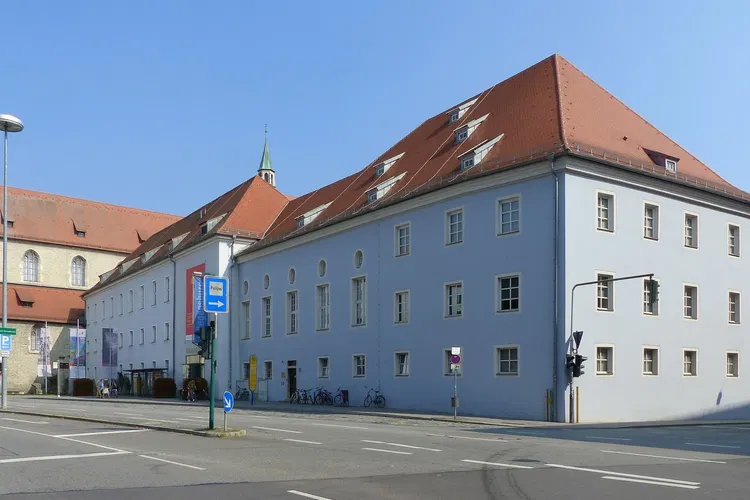
Regensburg Museum of History
RegensburgThe Historisches Museum in Regensburg, Bavaria, offers a comprehensive look into the history, art, and culture of Regensburg and Eastern Bavaria. Spanning from the Stone Age to the present day, the museum provides a unique opportunity to delve into the region's rich past. Visitors can explore a variety of exhibits that showcase the evolution of the area over thousands of years.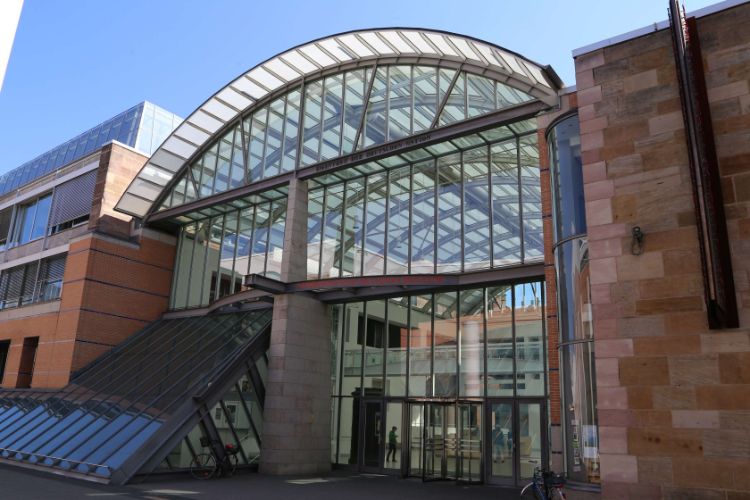
Germanisches Nationalmuseum
NurembergThe Germanisches Nationalmuseum is the largest museum of cultural history in Germany, located in Nuremberg. The museum holds and exhibits a large collection of items related to German culture and art from prehistoric times to the present day. The collection consists of around 1,3 million objects of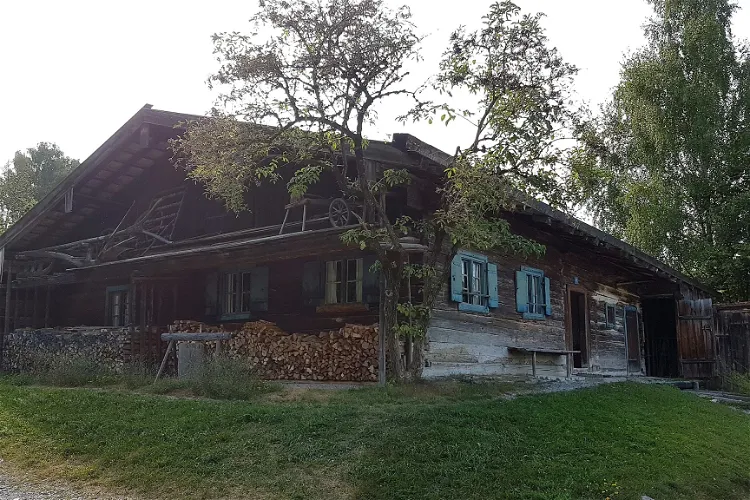
Freilichtmuseum Glentleiten
GroßweilThe Freilichtmuseum Glentleiten is a museum located in Oberbayern, dedicated to showcasing the rural life, living conditions, and economy of past centuries. It provides a unique opportunity for visitors to step back in time and experience the way of life in rural Oberbayern during the past centuries. The museum is a testament to the region's rich history and cultural heritage.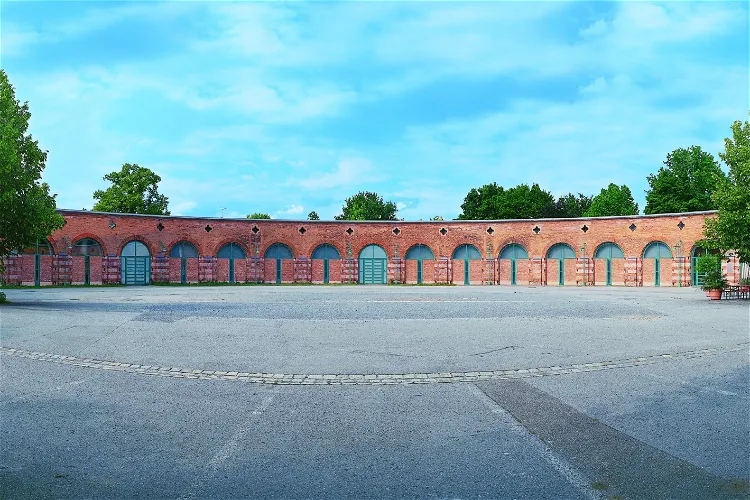
Lokschuppen
RosenheimThe Lokschuppen Rosenheim is an exhibition center situated in the heart of Rosenheim. It was established in 1988, following the transformation of the engine house of the city's first railway workshop. This historical site now serves as a cultural hub, hosting a variety of exhibitions and events throughout the year.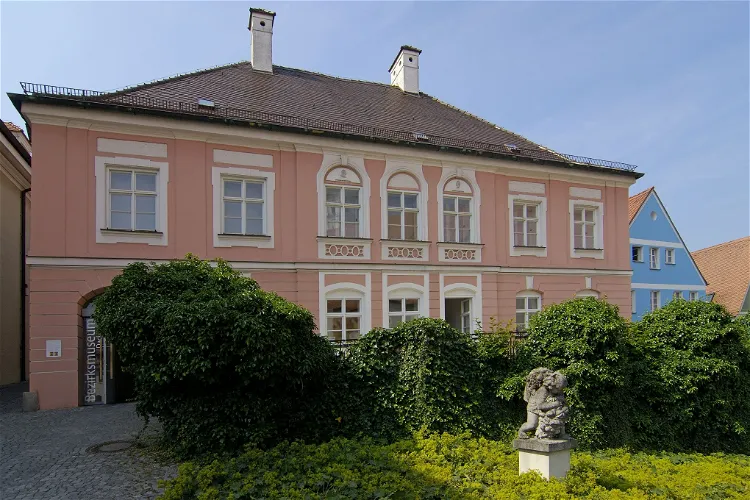
Bezirksmuseum Dachau
DachauThe Bezirksmuseum Dachau is a cultural hub that showcases approximately 2000 objects. These objects provide insights into the cultural history and folklore of the Upper Bavarian city of Dachau and its surrounding areas. Visitors can explore a wide range of themes, from the history of the city and county of Dachau to the local crafts, bourgeois lifestyle, and rural living.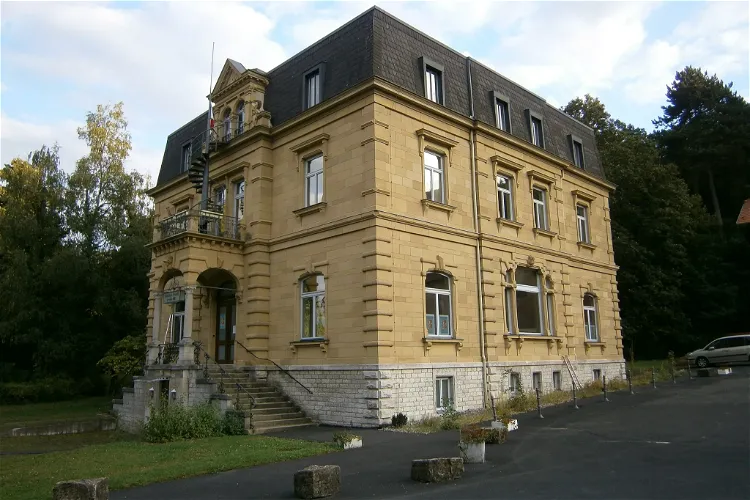
Siebold-Museum
WürzburgThe Siebold Museum in Würzburg is a tribute to the life and work of Philipp Franz von Siebold, a renowned doctor, Japan and natural scientist, ethnologist, botanist, and collector. The museum offers a deep dive into Siebold's contributions and his significant role in the fields of science and ethnology.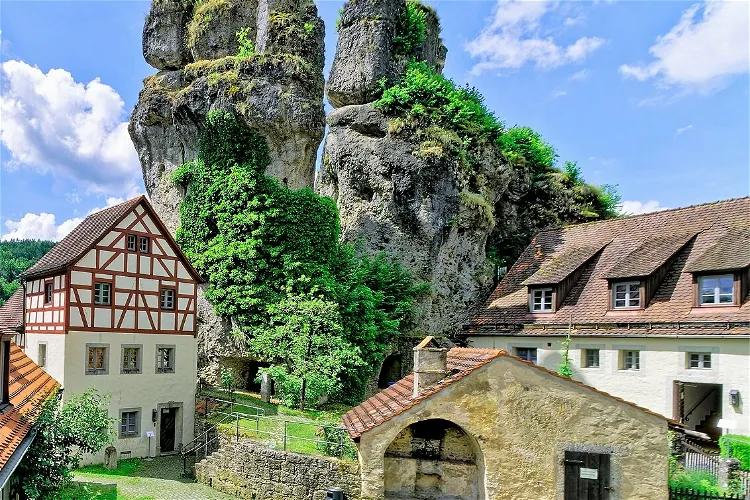
Fränkische-Schweiz-Museum
PottensteinThe Fränkische Schweiz-Museum (FSMT) in Tüchersfeld is a regional museum that offers a comprehensive overview of the Franconian Switzerland. The museum is spread over 43 rooms and covers approximately 800 m² of exhibition space. It provides a deep insight into the region's history, culture, and natural beauty.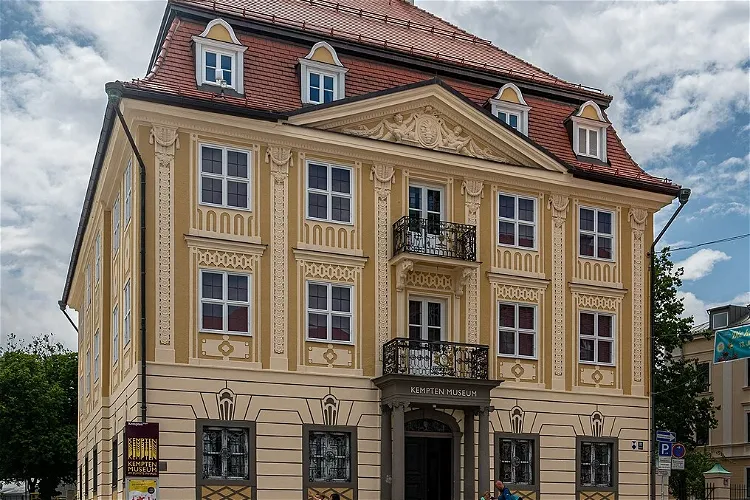
Kempten Museum in the Zumsteinhaus
Kempten (Allgäu)The Zumsteinhaus, located at Residenzplatz 31 in Kempten (Allgäu), is a monument protected by law. It was constructed in 1802 for the Zumstein de la Pierre family, who were merchants from Savoy. The building underwent restoration in 1959.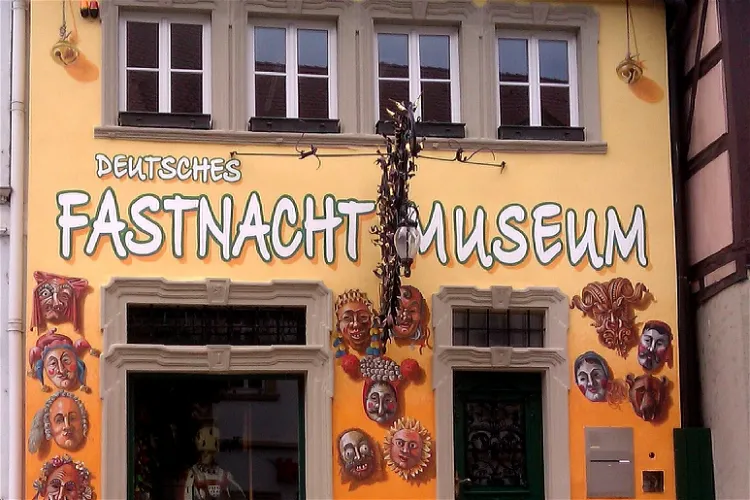
Deutsches FastnachtMuseum
KitzingenThe Deutsches FastnachtMuseum in Kitzingen is the official museum of the Bundes Deutscher Karneval, which is the umbrella organization of over 5,200 carnival associations, carnival guilds, carnival societies, and fools' guilds. This makes it a significant institution in the world of German carnival culture, offering a comprehensive insight into the traditions and history of the carnival in Germany.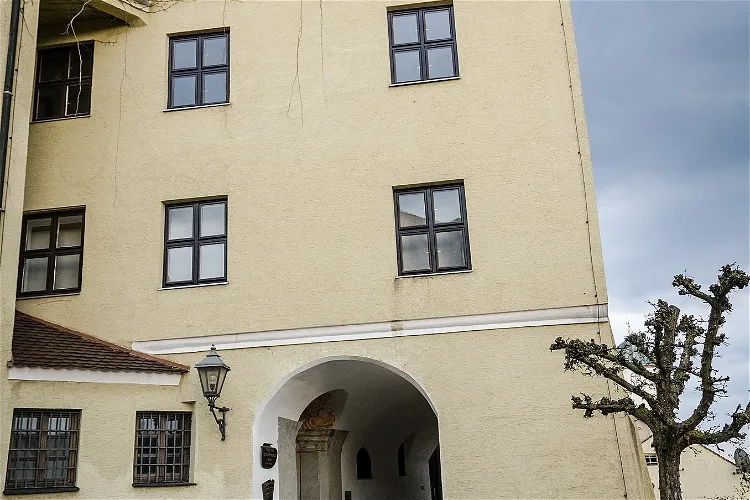
Stadt- und Hochstiftmuseum
Dillingen a.d.DonauThe Stadt- und Hochstiftmuseum, located in Dillingen an der Donau in Bavaria, is a museum that focuses on archaeology, cultural history, and city history. It provides a comprehensive overview of the region's past, making it a valuable destination for those interested in learning more about the area's rich history.
Historical Museum Bamberg
BambergThe Historical Museum Bamberg is situated in the Renaissance buildings of the Old Court, which is in close proximity to the Kaiserdom. This location adds to the historical charm of the museum and provides a unique setting for the exhibits. Visitors can enjoy the architectural beauty of the Renaissance buildings while exploring the museum's collections.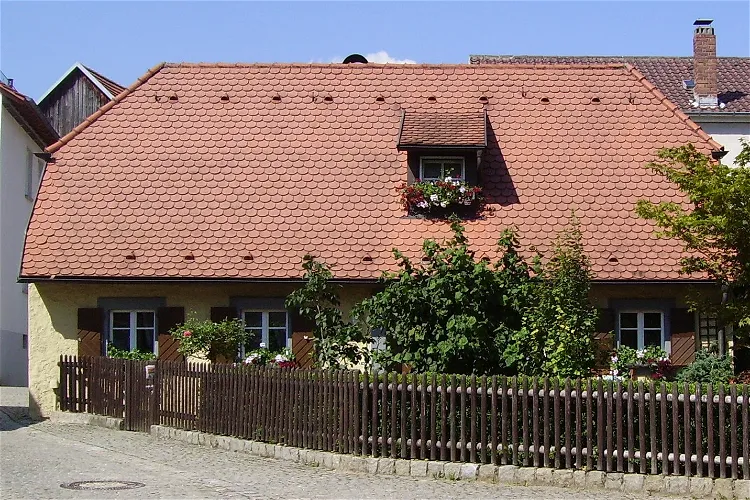
Museum Tropfhaus Sassanfahrt
HirschaidHistorically, Tropfhaus houses were small, with no more than 30 m² of living space. These houses were primarily occupied by day laborers, small craftsmen, and home workers. Despite the limited space, these workers often lived in these houses with their large families. The land on which a Tropfhaus was built was too small for self-sufficient agriculture.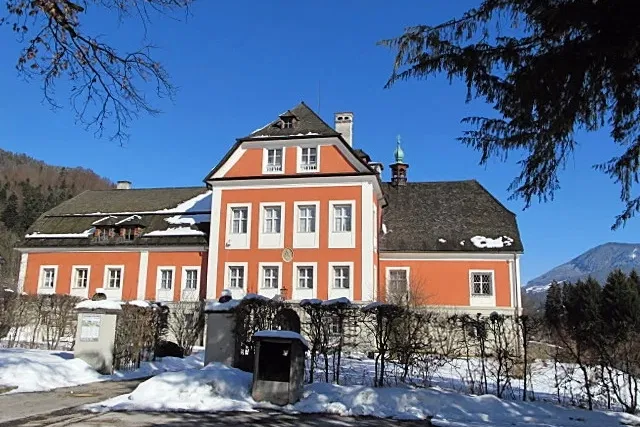
Museum Schloss Adelsheim
BerchtesgadenSchloss Adelsheim, located in Berchtesgaden, Bavaria, is a historic site that dates back to 1614. Since 1968, it has been home to the Museum Schloss Adelsheim. This museum showcases permanent and special exhibitions of historical objects related to Berchtesgaden on an exhibition area of up to 760 square meters.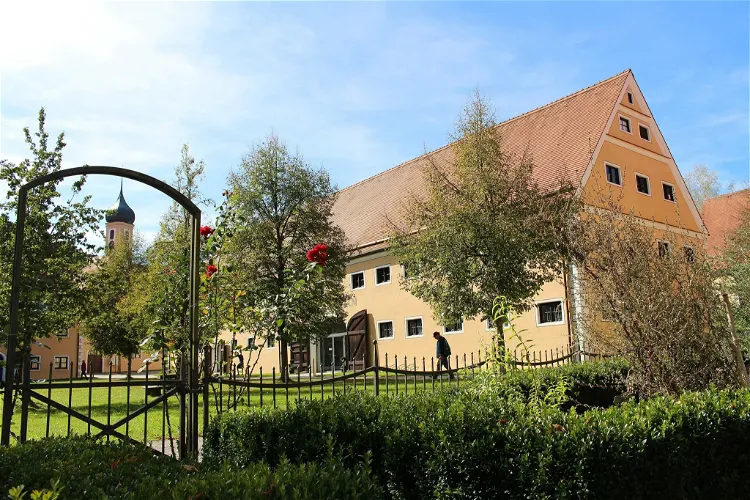
Museum Oberschönenfeld
MargertshausenThe Museum Oberschönenfeld, previously known as the Schwäbisches Volkskundemuseum Oberschönenfeld, is situated in the former protected economic buildings of the Cistercian Abbey Oberschönenfeld. The museum is nestled within the scenic Augsburg Nature Park - Western Forests, offering visitors a unique blend of cultural and natural attractions.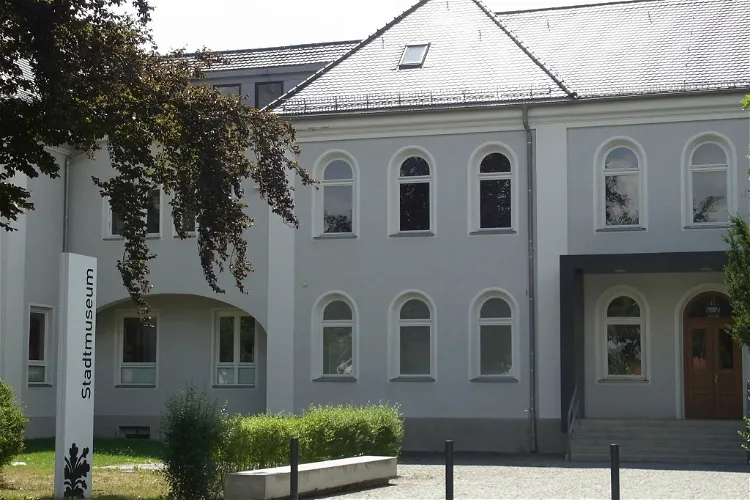
Stadtmuseum Aichach
AichachThe Stadtmuseum Aichach is a city and regional history museum located in the district of Aichach-Friedberg in the Bavarian administrative district of Swabia. It provides a comprehensive insight into the history and culture of the region, making it a worthwhile destination for those interested in local history.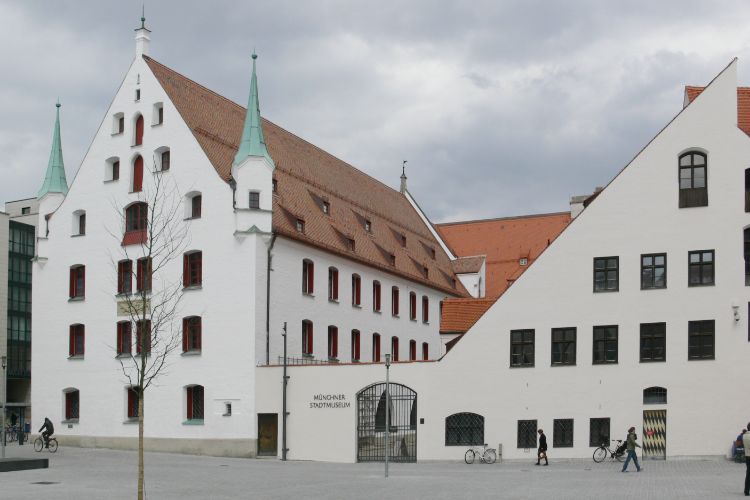
Munich Municipal Museum
MunichThe Munich Municipal Museum (Munich Stadtmuseum) is the city's main museum that houses various exhibitions on topics related to Munich on three floors, with focus on the culture. The museum is housed in the former municipal arsenal and stables, both of the late Gothic period. The museum features var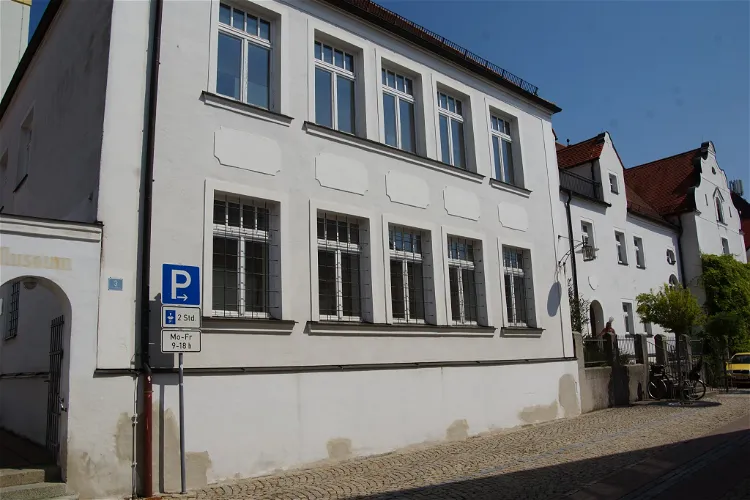
Museum Kösching
KöschingThe Museum Markt Kösching is an archaeological and ethnological museum situated in the Upper Bavarian market town of Kösching, within the Eichstätt district. It offers a unique opportunity to delve into the rich history and culture of the region, from ancient times to the present day.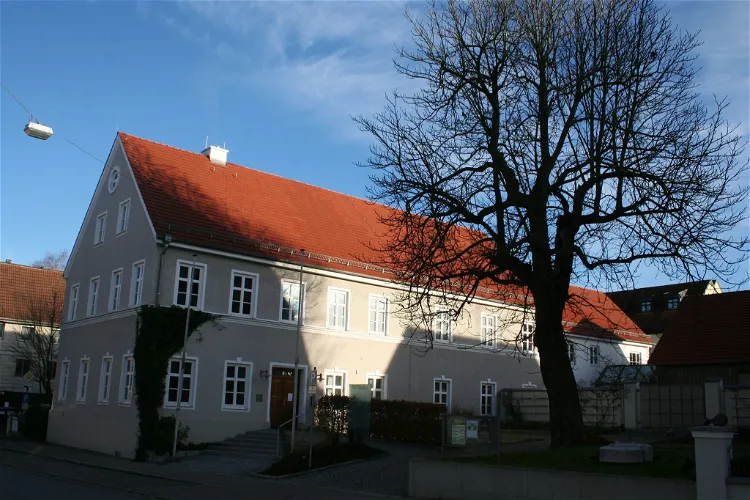
Mittelschwäbisches Heimatmuseum
Krumbach (Schwaben)The Mittelschwäbische Heimatmuseum, founded in 1908, is centrally located in Krumbach (Schwaben) since 1950. This museum is a significant part of the town's history and culture, offering visitors a chance to explore the region's past.
Sammlung Ludwig
BambergThe Sammlung Ludwig in Bamberg is recognized as one of the most significant private collections in the field of faience and porcelain. This collection, housed in the Altes Rathaus since 1995, is a testament to the passion and dedication of the collector couple Peter and Irene Ludwig. It offers a unique opportunity for visitors to explore a wide range of artifacts from different periods and regions.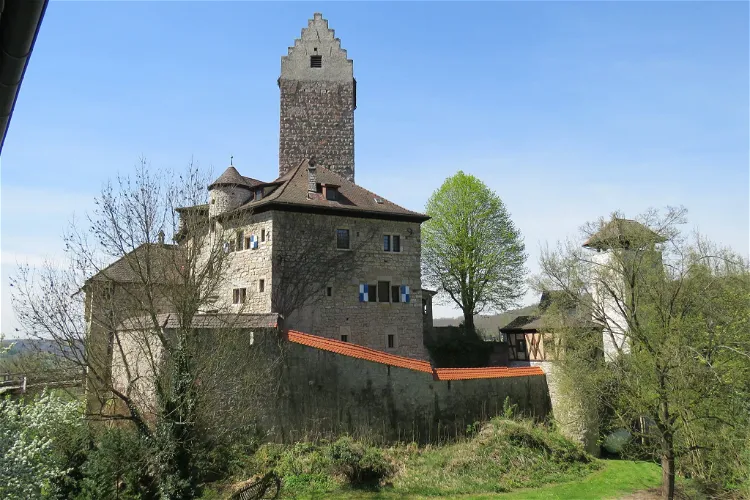
Römer und Bajuwaren Museum
KipfenbergThe Römer und Bajuwaren Museum Burg Kipfenberg is an archaeological, folkloric, and local history museum. It is situated in Kipfenberg, a market town in the Upper Bavarian district of Eichstätt. The museum is housed in a former economic building of Burg Kipfenberg, adding a touch of historical charm to the overall experience.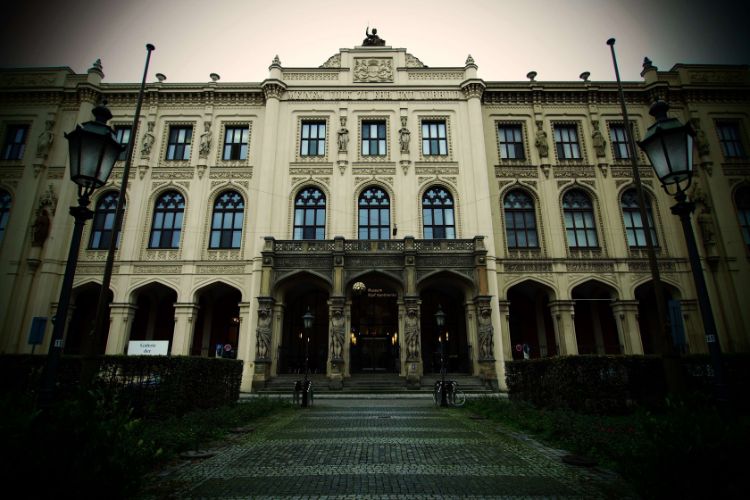
Museum Five Continents
MunichThe Museum Five Continents is a museum in Munich with non-European artworks and objects of cultural value. The collection exhibited in the museum dates back in part to 1782, when the curiosities gathered by the Wittelsbachs were exhibited in the galleries of the Residenz. The current collection cont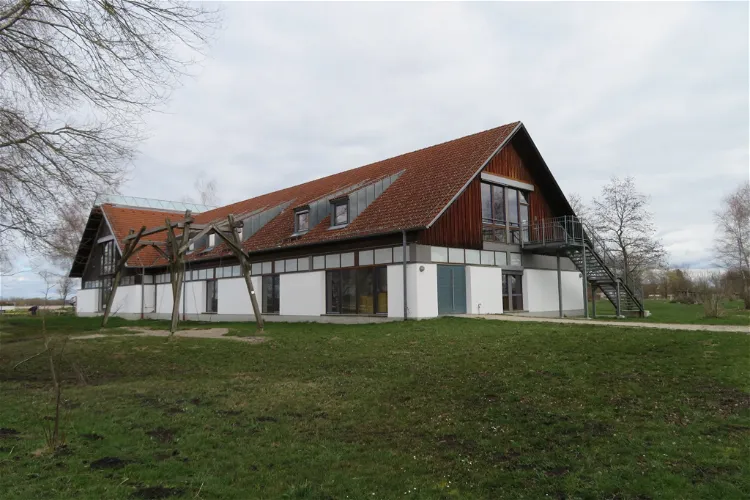
Haus im Moos
KleinhohenriedThe Haus im Moos in Kleinhohenried is a unique combination of a museum, educational center, and conference facility. Opened in 1998, it offers a rich insight into the history and culture of the Donaumoos region. The museum documents the struggle of the colonists for the drainage and cultivation of the moor, which began in the late 18th century. It is an ideal destination for those interested in history, culture, and nature.
Fränkisches Museum Feuchtwangen
FeuchtwangenThe Fränkisches Museum Feuchtwangen is a significant cultural institution located in the city of Feuchtwangen in the Middle Franconian district of Ansbach. The museum boasts an extensive exhibition area of over 2000 m², making it a spacious venue for visitors to explore and learn about the region's history and culture.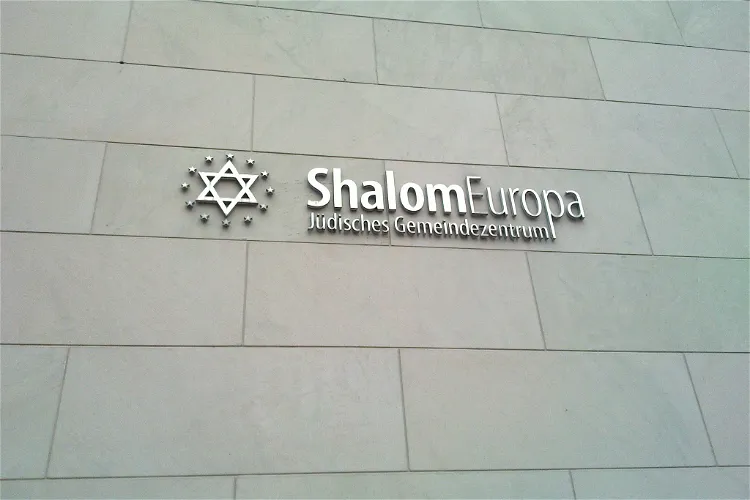
Shalom Europa
WürzburgShalom Europa provides a unique insight into traditional Jewish life in the present era. It offers visitors an opportunity to understand the essence of Orthodox Judaism. Rather than focusing on cultural-historical values, the museum emphasizes the continuity of Jewish tradition, making it a valuable educational resource for those interested in Jewish culture and history.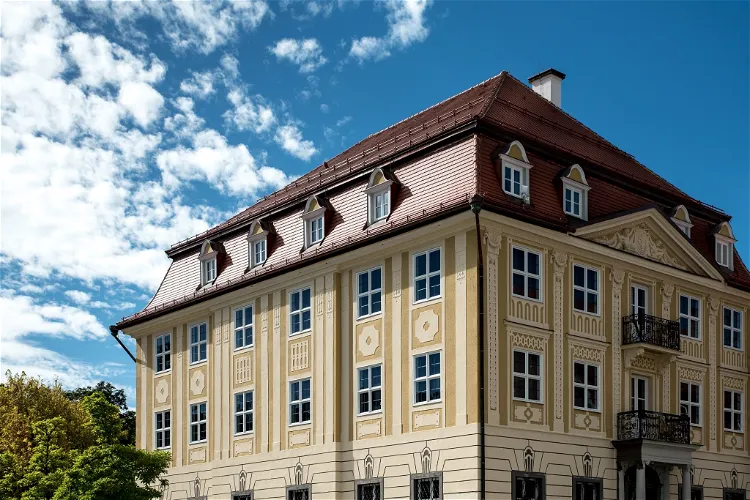
Kunsthalle Kempten
Kempten (Allgäu)The Kempten Museum, situated in the historic Zumsteinhaus, is a relatively new addition to the city's cultural scene, having opened its doors in 2019. The museum is dedicated to the history and culture of Kempten, one of the oldest cities in Germany. It offers a comprehensive overview of the city's past, spanning over 2000 years, from its ancient origins to the present day.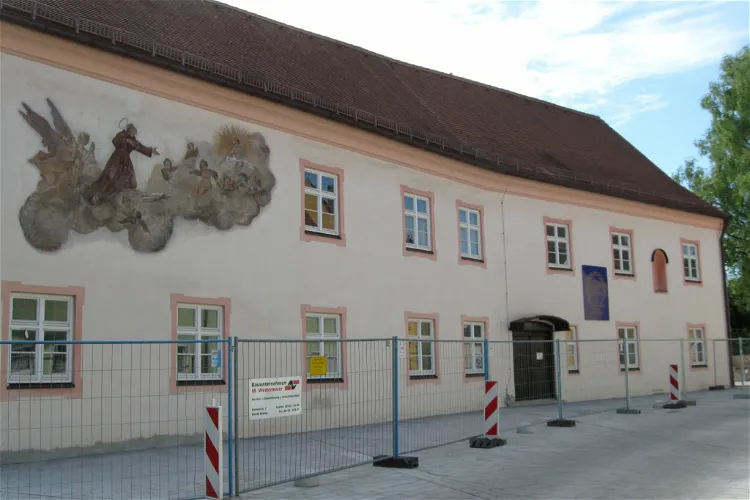
Museum Erding
ErdingThe Museum Erding, located in Erding, is a local history museum that was established in 1856 by Anton Bachmair, a shoemaker. With over 160 years of collection history, it is one of the oldest municipal museums in Bavaria. The museum's collection began with musician uniforms, weapons, and other items.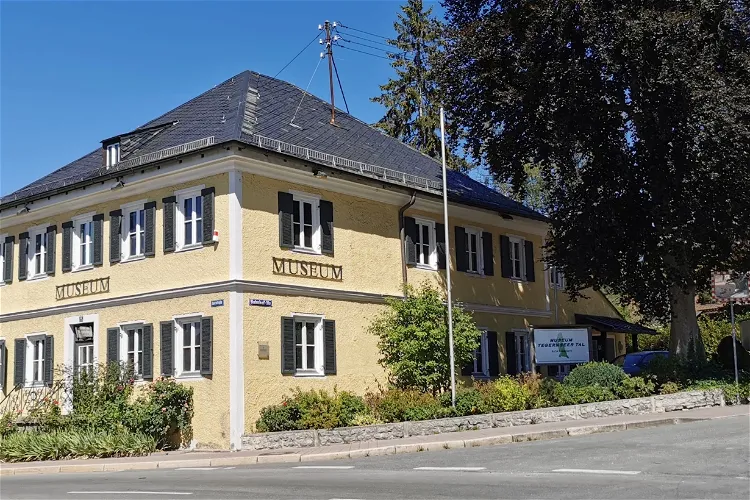
Museum Tegernseer Tal Kultur und Geschichte
TegernseeThe Museum Tegernseer Tal boasts a collection of approximately 850 exhibits, displayed across 17 rooms. These exhibits span a broad timeline, from the 14th century to the present, offering visitors a comprehensive look at the region's history and evolution over the centuries.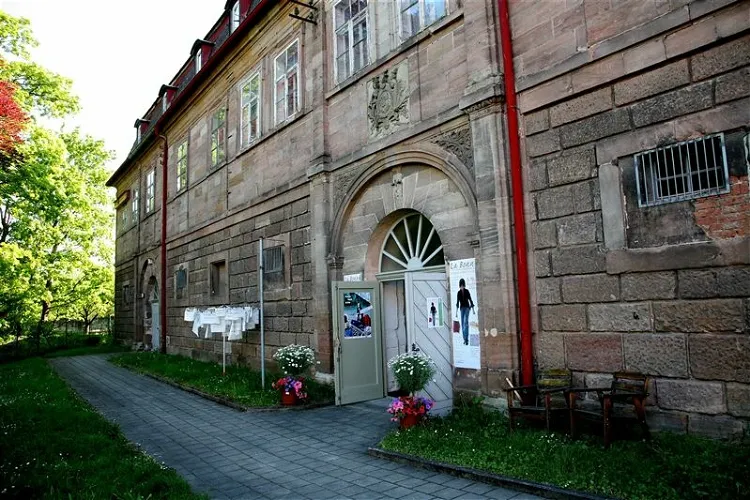
Museum Frauenkultur Regional-International
FürthThe Museum Frauenkultur Regional – International holds the distinction of being the first women's museum in Bavaria. It is situated in the Marstall of the Burgfarrnbacher Castle in Fürth, providing a unique setting for its exhibits.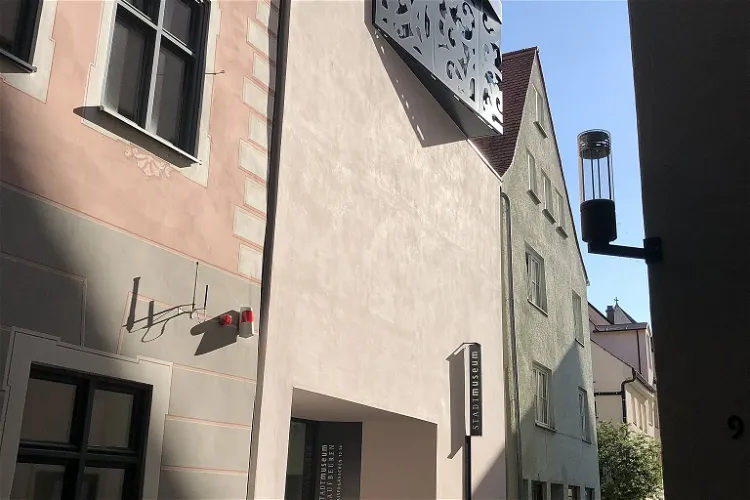
Stadtmuseum Kaufbeuren
KaufbeurenThe Stadtmuseum Kaufbeuren is a cultural history museum located in the city of Kaufbeuren. The museum focuses on the history of the city, presenting a permanent exhibition that illuminates the history of the Imperial City of Kaufbeuren with all its interconnections into economic and social history.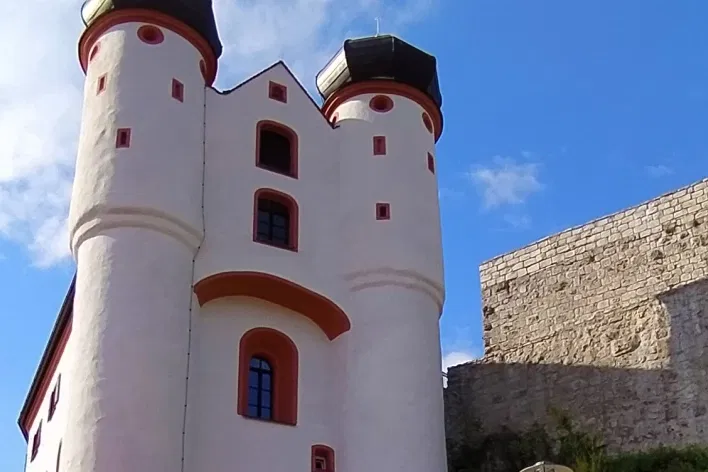
Burgmuseum Parsberg
ParsbergThe Parsberg Castle is a hilltop castle located on a limestone spur in the city center of Parsberg in the district of Neumarkt in Upper Palatinate, Bavaria. The complex has a long construction history that dates back to the 13th century. The castle museum, located in the lower castle, presents the h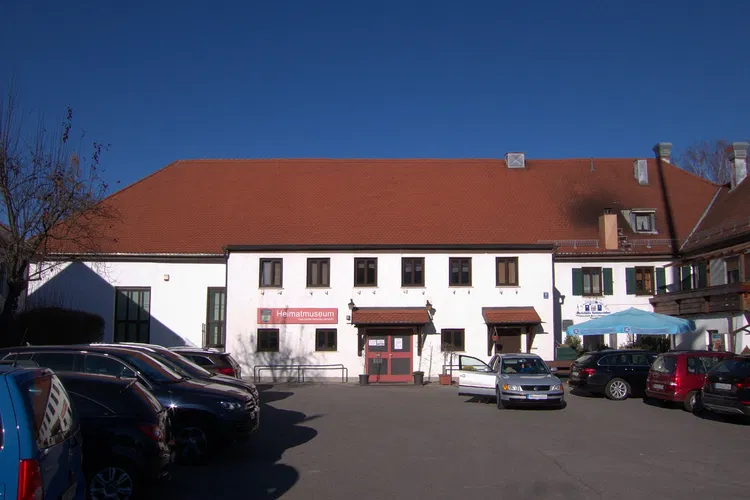
Heimatmuseum Unterhaching
UnterhachingThe Heimatmuseum Unterhaching is a museum located in the Upper Bavarian municipality of Unterhaching. It is dedicated to showcasing the evidence of human existence in the Unterhaching municipality area, a history that spans over 4500 years. This makes it a significant destination for those interested in history and archaeology.
Heimatmuseum Vilsbiburg
VilsbiburgThe Heimatmuseum Vilsbiburg is a folk museum that is situated in the former Holy Spirit Hospital, a building that dates back to the 15th century. The museum also extends to an adjacent neighboring house. The museum was established with the support of the city of Vilsbiburg, reflecting the city's commitment to preserving and showcasing its rich cultural heritage.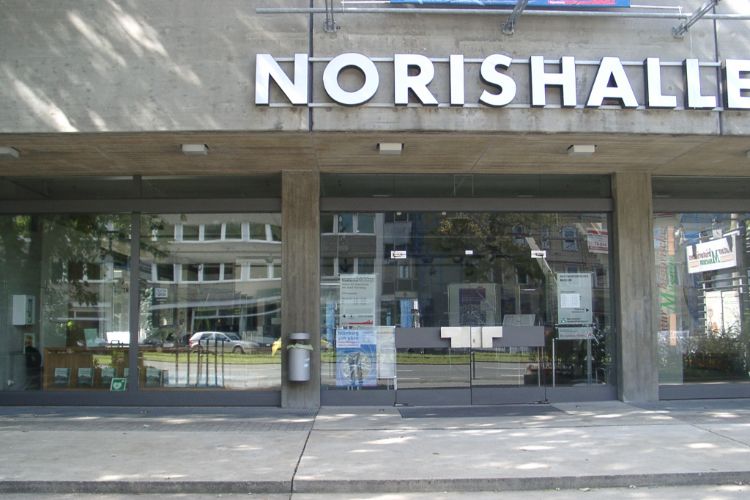
Natural History Museum
NurembergThe Natural History Museum in Nuremberg exhibits parts of the collections of the Natural History Society Nuremberg. The permanent exhibition in the Natural History Museum in Nuremberg covers the areas: ethnology, prehistory, archeology of Jordan, karst and speleology and geology. Zoology, entomology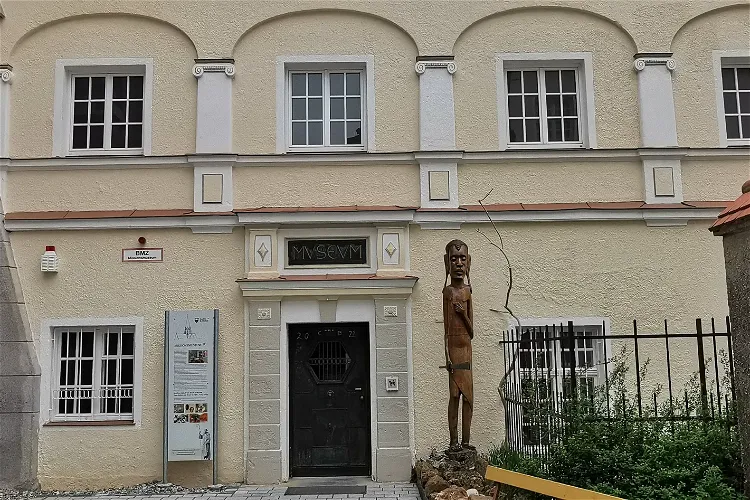
Missionsmuseum
Sankt OttilienThe Missionsmuseum in Sankt Ottilien, established in 1887, is a significant historical site located within the premises of the Archabbey of Sankt Ottilien. The museum houses an ethnological and natural history collection from the former mission areas of the monastery. It serves as a comprehensive documentation of the history of the Benedictine Congregation of St. Ottilien, providing visitors with a deep understanding of the congregation's past.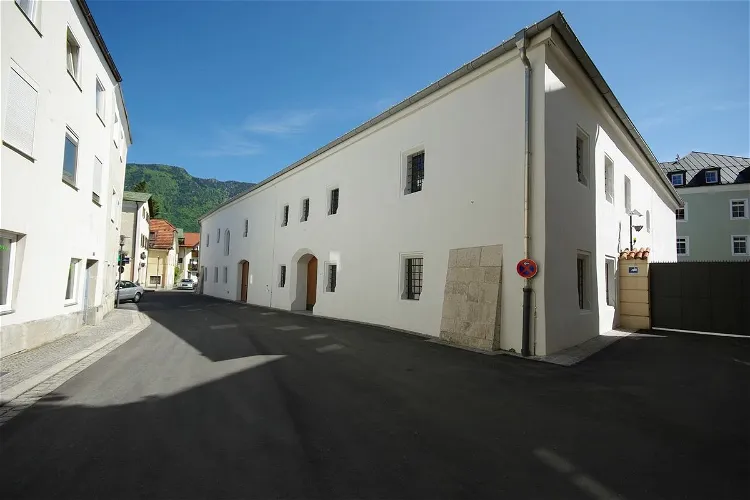
ReichenhallMuseum
Bad ReichenhallThe ReichenhallMuseum, previously known as the Städtisches Heimatmuseum Bad Reichenhall, is the local museum of the Upper Bavarian city of Bad Reichenhall. It is housed in the city's former grain store, located at Getreidegasse 4. The museum showcases numerous exhibits related to the history of salt mining, local crafts, city history, geology, and folklore.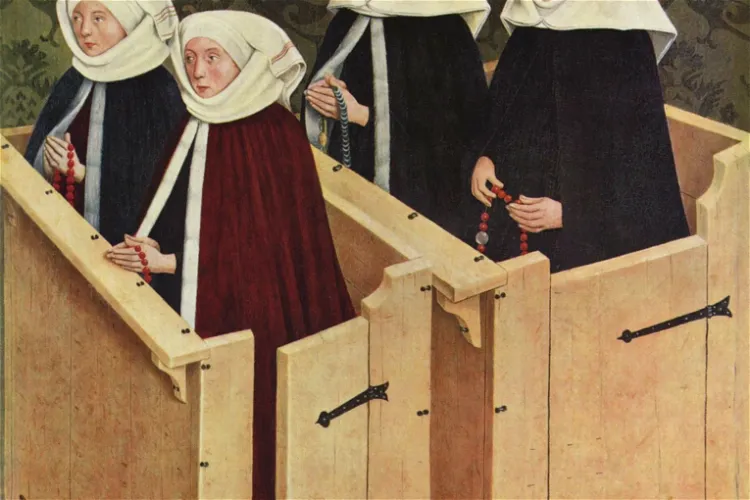
Stadtmuseum Nördlingen
NördlingenThe Stadtmuseum Nördlingen is a museum that provides a comprehensive insight into the history of the former Free Imperial City of Nördlingen. It is an ideal place for tourists who are interested in learning about the city's past and its significance in history.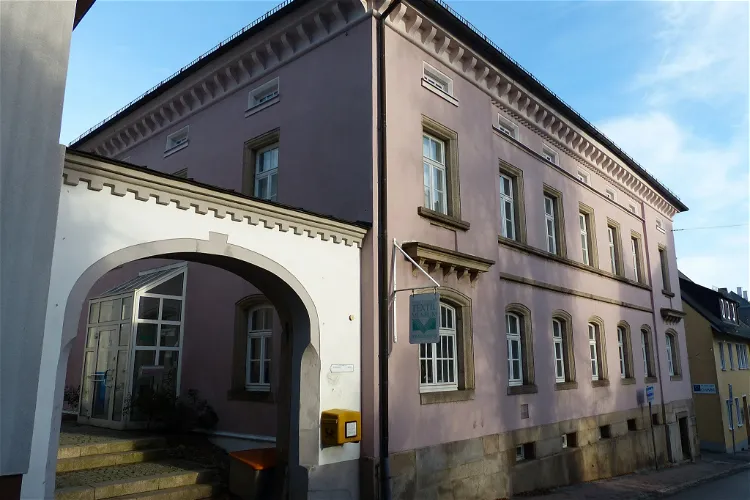
Oberfränkisches Textilmuseum Helmbrechts
HelmbrechtsThe Oberfränkisches Textilmuseum provides a comprehensive overview of the region's textile manufacturing history, which spans centuries. From the hand weaving of linen, wool, and cotton in pre-industrial times to the modern textile industry, the museum showcases the evolution of textile production techniques.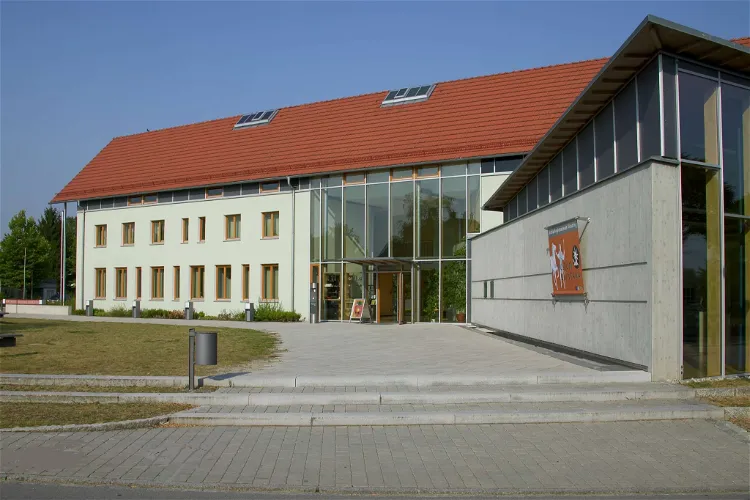
Museum Quintana
BruckThe Museum Quintana, also known as Museum Quintana - Archaeology in Künzing, is an archaeological museum located in the Lower Bavarian municipality of Künzing in the Deggendorf district. It is a partner museum of the Archaeological State Collection in Munich and a member of the Museum Network World Heritage Danube Limes Experience. The museum is supported by the municipality of Künzing and showcases archaeological finds from the Künzing municipality area.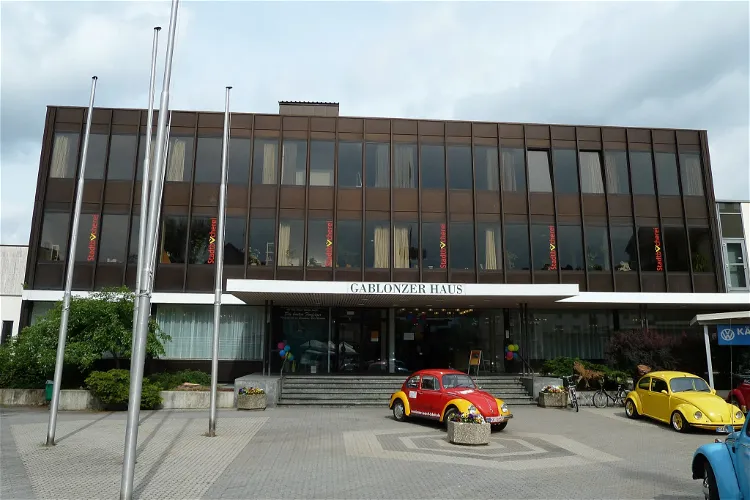
Isergebirgs-Museum Neugablonz
KaufbeurenThe Isergebirgs Museum Neugablonz is situated in the district of Neugablonz in Kaufbeuren. The museum focuses on the history of the Isergebirge region, which was settled by Germans, and the experiences of the displaced Isergebirgler people. The narrative of the museum is illustrated through the lens of the fashion jewelry city of Neugablonz.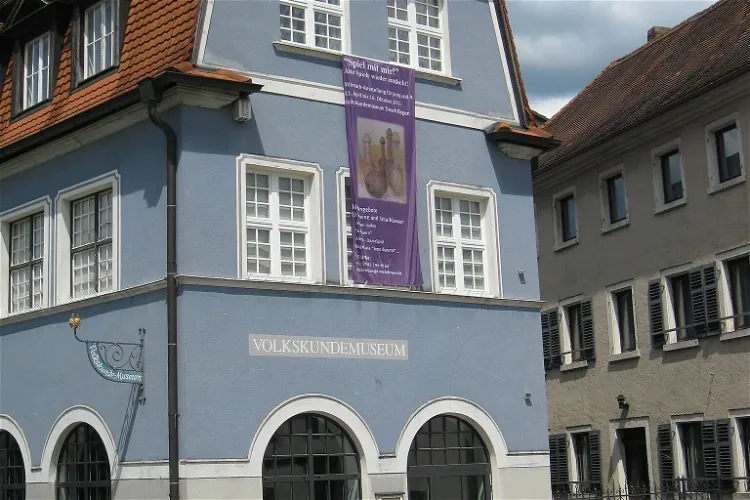
Museum Treuchtlingen
TreuchtlingenMuseum Treuchtlingen, situated in the Middle Franconian district of Weißenburg-Gunzenhausen, is recognized as one of the largest folk museums in Bavaria. The museum boasts a vast collection of more than 30,000 objects, offering a comprehensive insight into the region's cultural and historical heritage.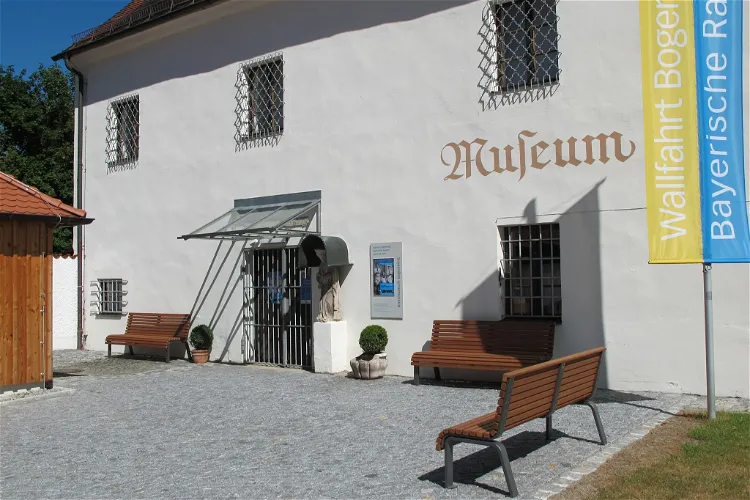
Kreismuseum Bogenberg-Heimatmuseum
BogenThe Kreismuseum Bogenberg is situated in a prominent location above the city of Bogen, on the summit of Bogenberg. This location offers a stunning view of the surrounding area and is directly opposite the Bogenberg pilgrimage church, adding to the historical and cultural significance of the site.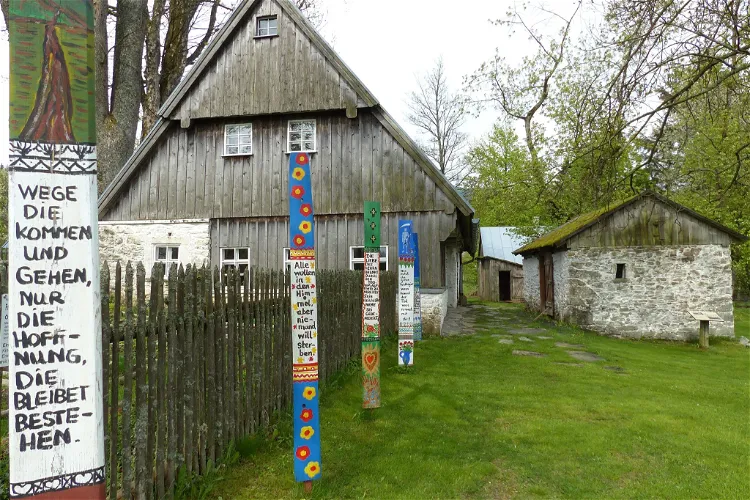
Freilandmuseum Grassemann
GrassemannThe Freilandmuseum Grassemann serves as an information center for the Fichtelgebirge Nature Park and is an open-air museum located in Grassemann, a district of the Upper Franconian municipality of Warmensteinach. This location offers visitors a unique opportunity to learn about the region's natural environment and cultural history.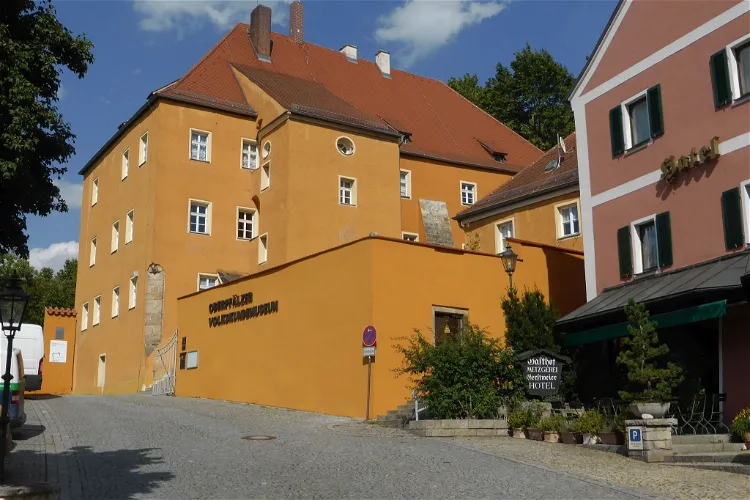
Oberpfälzer Volkskundemuseum
BurglengenfeldThe Oberpfälzer Volkskundemuseum is situated in the city of Burglengenfeld. It is housed in the monument-protected former Pfleghaus, also known as the "Große Kanzlei" of the castle of Burglengenfeld. This location adds a historical charm to the museum, making it an interesting destination for tourists who appreciate history and architecture.- 44
Heimatmuseum Stadt- und Landkreis Neudek im Erzgebirge
AugsburgThe Heimatmuseum for the city and district of Neudek in Augsburg is a museum that focuses on the traditions and history of the Germans who were expelled from the now Czech city of Nejdek (German Neudek) after the Second World War. This museum provides a unique insight into the history and culture of this region and the people who once lived there. - 45
Trachtenmuseum
OchsenfurtThe Trachtenmuseum in Ochsenfurt is a specialized museum that showcases regional costumes in their various forms. It provides a unique opportunity for visitors to explore the rich cultural heritage of the region through its traditional attire. The museum's collection includes a wide range of costumes, each with its own unique design and significance.